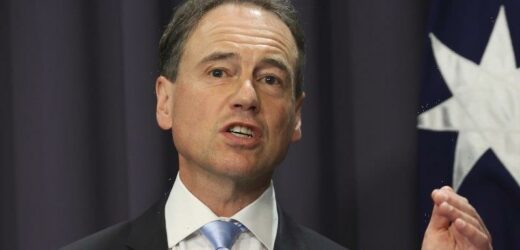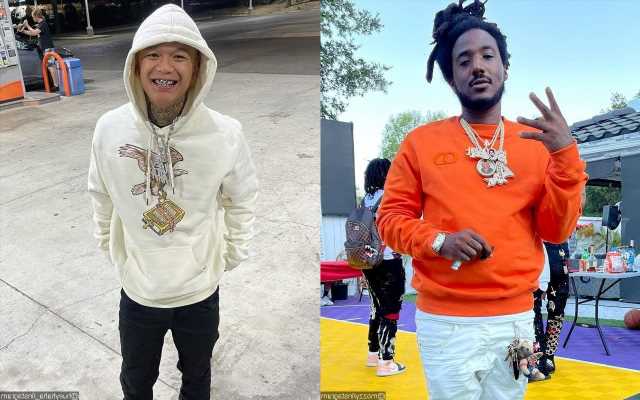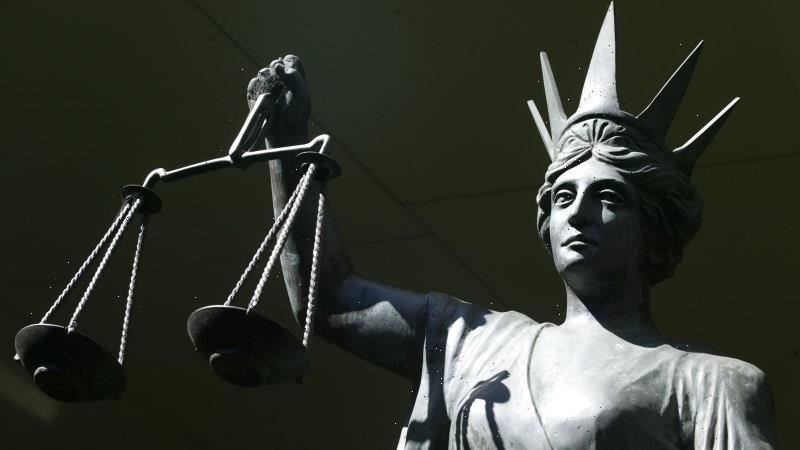For our free coronavirus pandemic coverage, learn more here.
A third of eligible NDIS participants aged over 16 still isn’t fully inoculated against COVID-19 as the federal government stalls on unveiling its promised disability vaccination plan eight months after the nation’s rollout began.
Advocates warn those who are unvaccinated or have had only one dose are “sitting ducks” as coronavirus restrictions lift, calling for targeted measures such as better in-home vaccination programs and dedicated booking services staffed by trained disability workers.
Health Minister Greg Hunt says the government is still working on boosting disability vaccination rates.Credit:Alex Ellinghausen
NDIS Minister Linda Reynolds on Thursday declined to say whether the federal government’s disability sector COVID-19 vaccine implementation plan, which the Health Department promised in March, existed.
Asked by Labor senator Nita Green whether she had seen the plan, Senator Reynolds told a late night Senate hearing: “We’ll take that on notice and talk to Health.”
“But, like, does it exist?” Senator Green asked. “This seems like such a ridiculous thing to not be able to answer. I’m sorry, but there should be a final version of the plan, right? In March, you said, the government said, it’s going to be done. Is there a final version of the plan?”
Acting deputy secretary Luke Mansfield told the committee: “I will check, during the course of this hearing, and get an answer to that.” No answer was provided by the end of the hearing.
Health Minister Greg Hunt said on Friday there had been “strong growth” in the vaccination rate of Australians with a disability, while pointing to vaccine hesitancy in pockets of the sector.
There are 450,000 people receiving support from the National Disability Insurance Scheme, including children not yet eligible for a vaccine.
Mr Hunt said 66 per cent of NDIS participants over 16 were fully covered and 77 per cent had had at least one dose. Fewer than 60 per cent of NDIS participants aged 12 to 15, who became eligible in August, had received an initial dose. In the broader population, 76 per cent of Australians are double-vaccinated while 88 per cent have received at least one dose.
“It’s not a question of access,” he told reporters in Melbourne. “We do know that there has been hesitation in the disability community and so we’re putting an enormous amount of community consultation in.”
But Labor’s NDIS spokesman Bill Shorten said 34 per cent of NDIS participants over 16 still not being fully vaccinated was “a horrendous and shameful statistic this late in the game and as Australia opens up”.
People With Disability Australia president Samantha Connor said disabled Australians had been “deprioritised” in the COVID-19 response and would be “sitting ducks” as borders reopened, especially in areas with low overall vaccination rates.
The peak body is also calling for people with disability who have conditions affecting their immune systems to be given immediate access to a booster shot.
Mr Hunt said people in high priority groups, including residents of disability facilities, would be the first eligible for booster shots under the national program starting on November 8.
Senator Reynolds said on Friday Australians with disability had been a priority throughout the rollout and she had been “very actively engaged” with representative organisations, NDIS providers, sector peaks, states and territories and other stakeholders since taking on the portfolio in March.
Mr Shorten called for a plan “to ensure all people with disabilities in Australia have access to vaccines and the booster shots”.
The NDIS Quality and Safeguards Commission website says the Health Department “will soon release” the vaccination plan.
Fascinating answers to perplexing questions delivered to your inbox every week. Sign up to get our new Explainer newsletter here.
Most Viewed in Politics
From our partners
Source: Read Full Article



